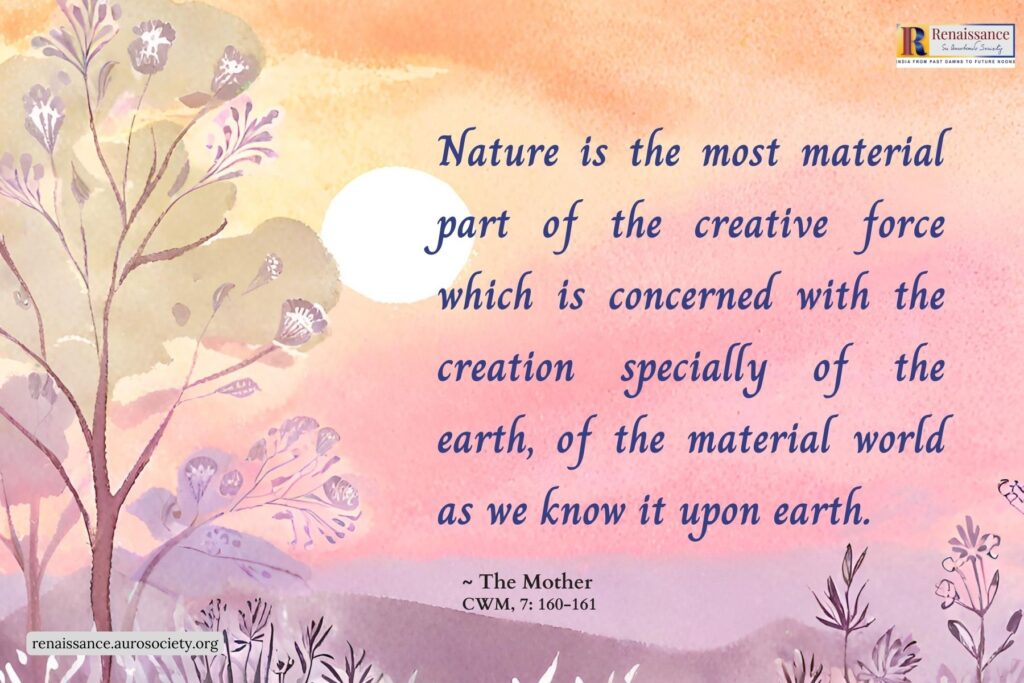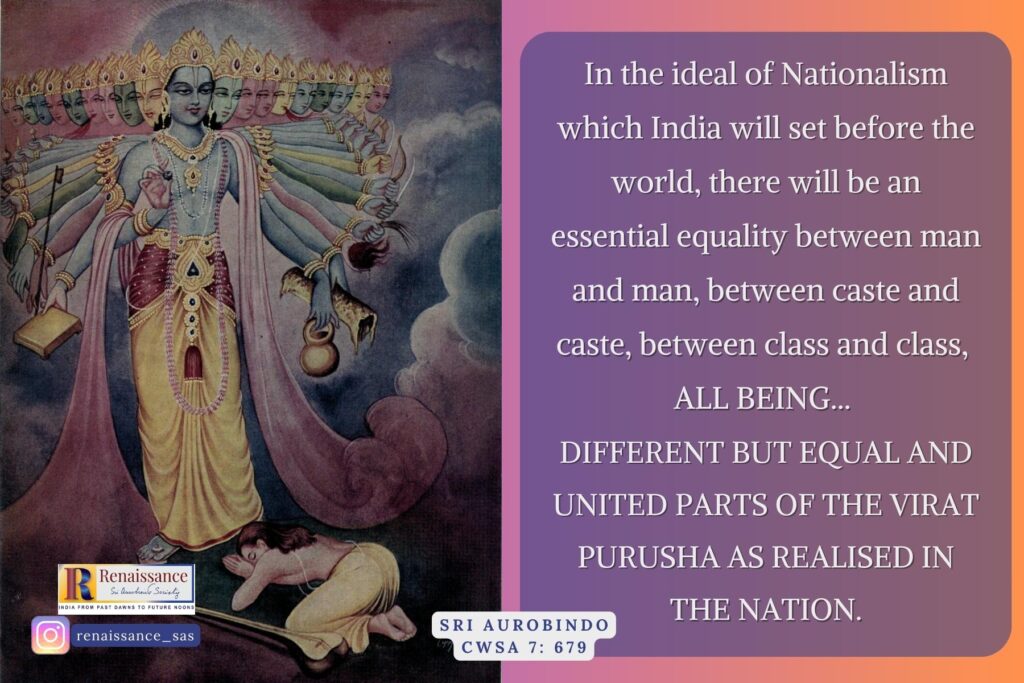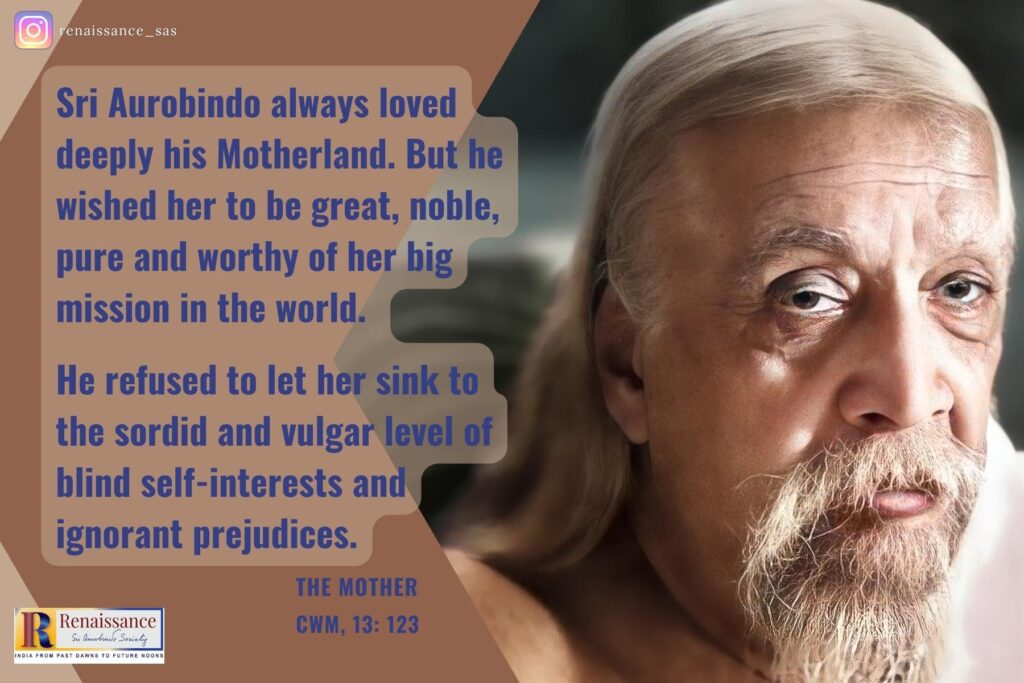Editor’s note: The author takes a fascinating example from the world of literature to speak of the significance of self-giving in parenting and all human relationships.

. . . human society, human friendship, love, affection, fellow-feeling are mostly and usually – not entirely or in all cases – founded on a vital basis and are ego-held at their centre. . . There are of course higher spiritual, psychic, mental, vital elements that come in or can come in. . .
~ Sri Aurobindo, CWSA, Vol. 31, p. 285
All Our Relationships
If you expect a return for your kindness, you are bound to be disappointed. It is only those who give love or kindness for its own sake without expecting a return who escape from this experience.
~ Sri Aurobindo, CWSA, Vol. 31, p. 317
Almost all human relationships have elements of egoism mixed in them. They express in different ways as possessiveness, domination, expectation, insecurity, jealousy, pride, or selfishness. The parents’ love for children is not untouched by these traits.
Parents’ expectation that the children should obey unquestioningly, their conviction that they know best what is good for the children, their tendency to assert themselves and take decisions on their children’s behalf, taking pride in their children’s accomplishments, displaying favouritism, and expecting children to think, feel or act in a certain way at various stages of their lives are all forms of egoistic self-love. Such expectation unfailingly results in disappointments and unfulfilling relationships.
The Alchemy of Self-giving
. . . the life which only receives and does not give must become barren, wither and perish, — if indeed such life in its entirety is possible at all here or in any world; . . . (love’s) true law is to establish an equal commerce in which the joy of giving is equal to the joy of receiving and tends in the end to become even greater. . . In its life-origin, the law of love is the impulse to realise and fulfil oneself in others and by others, to be enriched by enriching. . .
~ Sri Aurobindo, CWSA, Vol. 21, p. 217
* * *
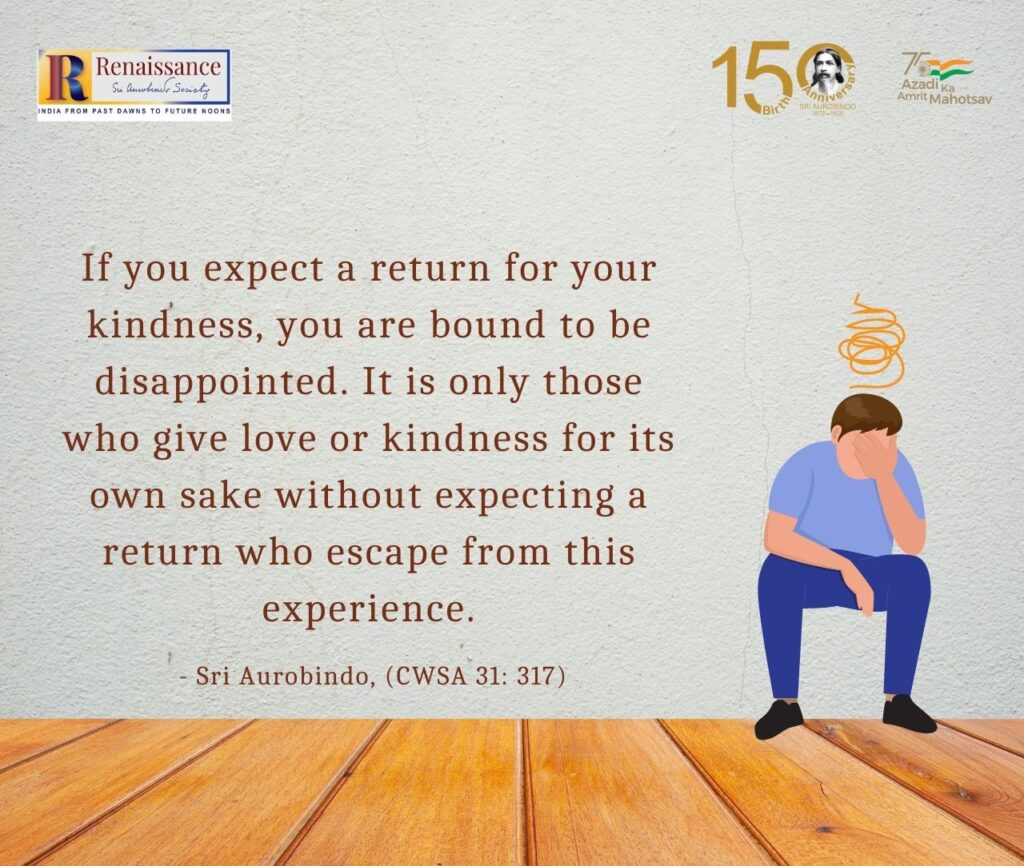
It is a sincere self-giving that saves one from all difficulties and dangers.
~ The Mother, CWM, Vol. 14, p. 101
Sri Aurobindo says in The Life Divine that all problems of existence are essentially problems of harmony. To elevate the relationship between parents and children would require removing all causes of disharmony.
One of the methods by which a parent can achieve this is by practising self-giving.
The complete dissolution of the self, to serve another – in this case, the children – and to give unconditionally purifies the human relationship and raises it above the level of vital attachment to that of divine love. When the egotism subsides and our initiatives stem from selfless values such as truth, goodness, sincerity and generosity, all that we touch, including relationships, turn into gold.
Use of Literature in Understanding Life
A library should be an intellectual sanctuary where one comes to find light and progress.
The Mother, CWM, Vol. 12, p. 149
Mental understanding can come from reading, but it is only when the emotions are touched that the understanding is accepted and internalized. What was mere information becomes knowledge. Literature and the arts have this power of touching our emotions.
Academic books and news reports can describe the Industrial Revolution in England, the American Civil Rights Movement or the Indian freedom struggle comprehensively. But it is left to Charles Dickens’ novel David Copperfield, the song We Shall Overcome, or Bankim Chandra Chatterjee’s poem Vande Mataram, which Sri Aurobindo called the national anthem of Bengal, to make the understanding relatable and real to us.
What touches us in our emotions becomes our soul’s knowledge, and leads us to light and progress. It is for this reason that the idea of self-giving in parenting can be powerfully illustrated with the story Doctor Thorne by the English writer Anthony Trollope.
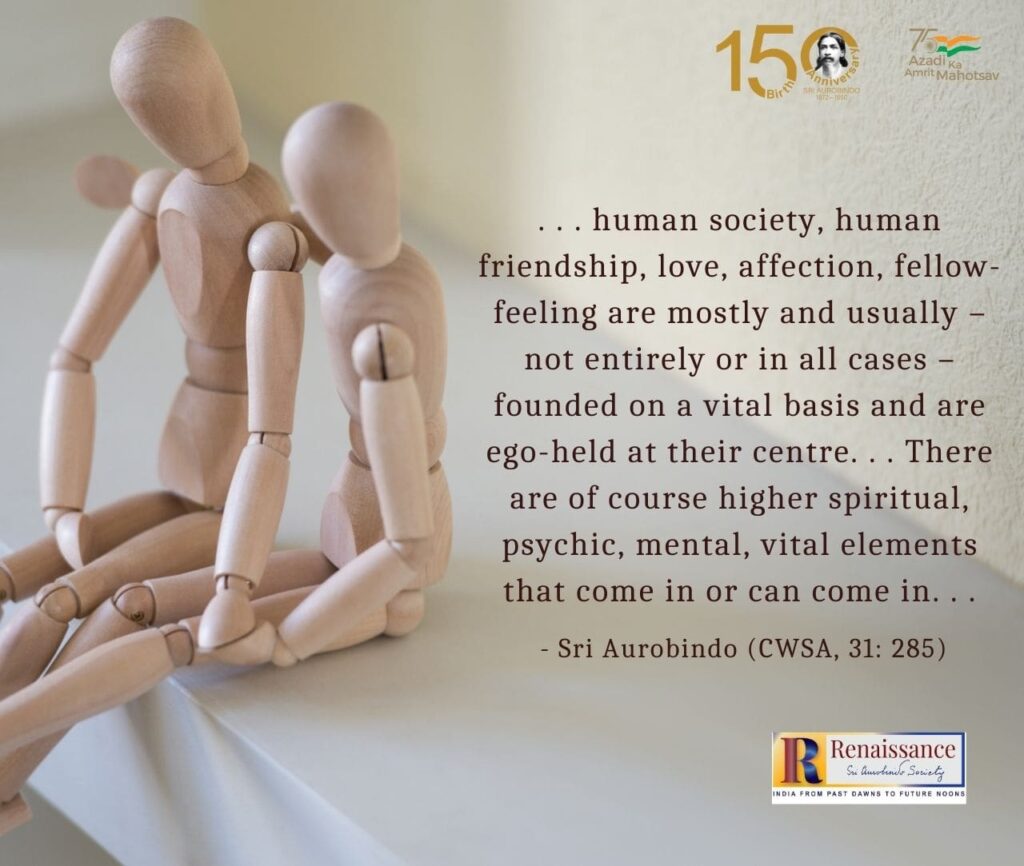
Anthony Trollope’s Doctor Thorne
A teaching can be profitable only if it is perfectly sincere, that is, if it is lived while it is being given. . .
The Mother, CWM, Vol. 1, p. 56
Doctor Thorne is a man of good nature and sound character whom life has tested at a young age. After some initial struggles, he is just establishing a medical practice in a village in England when his brother gets into trouble with a girl in the village and is killed in a fight with the girl’s brother Roger. This girl finds herself with a child, but a new life beckons her in Canada if she will let go of the child.
Thorne comes forward to take charge of this child, his niece, so that her mother can start life anew. He also sympathises with Roger, and takes care of Roger’s family during their troubles. His medical practice is affected; money is not in plenty. And the girl he wished to marry leaves him because she wants no share in all these difficulties. But Thorne is selfless in dealing with his brother, Roger, Roger’s sister, with all the villagers, and most of all, with the child Mary.
He brings up Mary as few parents would, without giving a thought to himself. He has sacrificed his youth, his marriage, his interests, in fact a large part of his life for this child whom he loves deeply.
Mary grows up with the daughters in the local squire’s household. The squire’s son falls in love with Mary and marries her. Roger becomes a wealthy man and leaves Mary his entire fortune. Thorne lives to see this child whose life began in tragic circumstances go on to become a happy, good-natured, beautiful heiress who marries the man made after her own heart.
But there is more that Thorne’s self-giving brings him.
Through his niece, he finds a woman who values his goodness of heart. This lady, with wit, vivacity, fabulous wealth and connections in high society, complements Thorne. Whatever he gave up earlier in life out of selfless idealism comes back to him at a far higher level.
Thorne has no one to tell him what is right and what is wrong, what will turn out to be good for himself or for Mary. He chooses the nobler of two alternatives whenever life presents him with a choice. Setting aside personal preferences and advantages, he does what is best for Mary unconditionally and without expectation. Life gives Mary all the happiness any girl can hope for. And it elevates Thorne to heights far beyond anything he imagined.
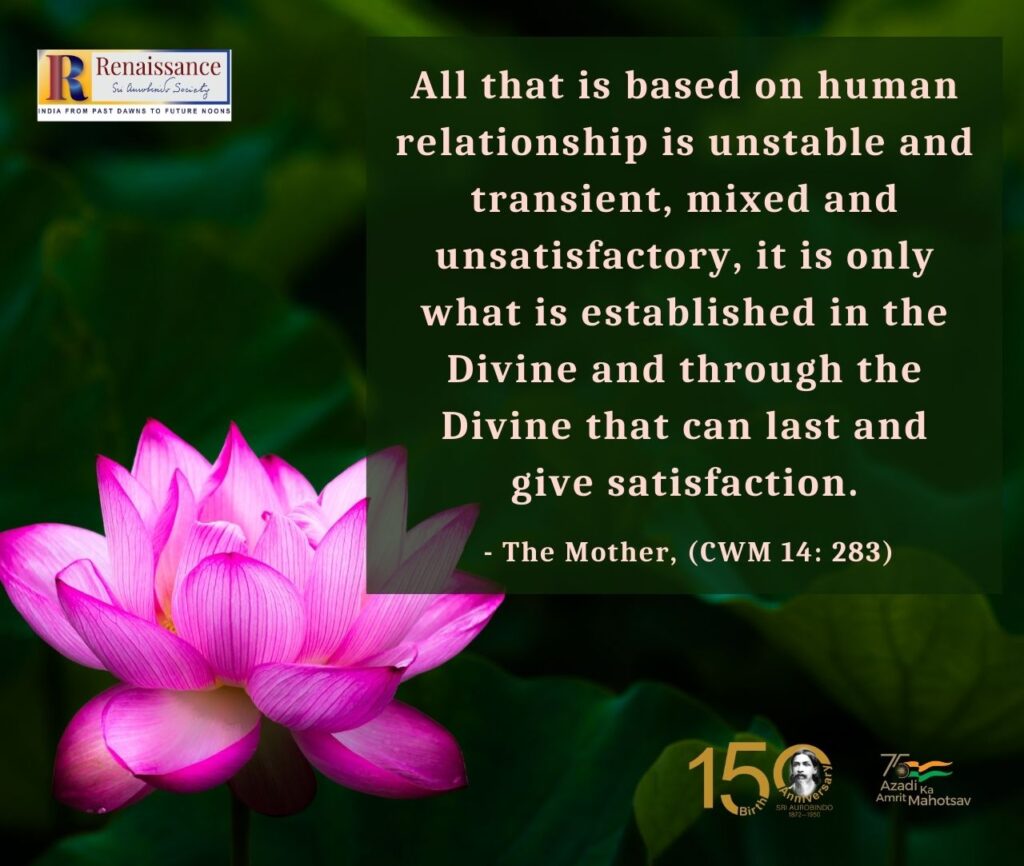
Conscious Parenting
As for the motherly feeling – it has to be transformed like everything else. . . . one has to make oneself an instrument merely, but without even the ego of the instrument, and to be conscious of the source, not insisting on the action or any relation, but simply allowing it to be useful whenever one can clearly feel that it is intended.
Also one must be careful that no force comes through one except the right forces, those which are in harmony with the higher consciousness and help. If one does always in that spirit and with that care, then even if mistakes are made, it does not matter – the growing consciousness will set them right and progress towards a more perfect working.
Sri Aurobindo, CWSA, Vol. 31, p. 322
Conscious parenting requires raising one’s consciousness.
Consciousness is a creative power, and the basis of all accomplishment. It brings success in work, harmony in relationships, fulfilment in life and spiritual progress.
True self-giving in parents raises the consciousness in the family.
Children become energized physically, emotionally and mentally. They become empowered to attract life forces that aid them at every stage. The right circumstances come about. The right people enter their lives. Luck is created. Life cooperates.
All that is based on human relationship is unstable and transient, mixed and unsatisfactory, it is only what is established in the Divine and through the Divine that can last and give satisfaction.
The Mother, CWM, Vol. 14, p. 283

Also read:
Sri Aurobindo on Parenting and Education in Subjective Age
~ Design: Raamkumar

